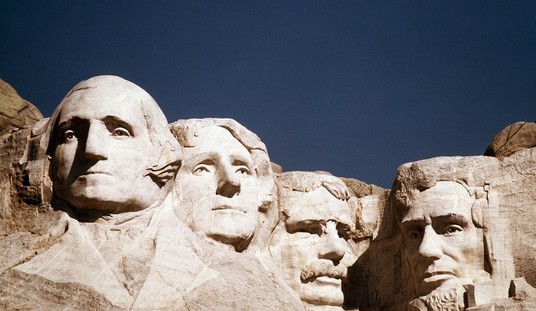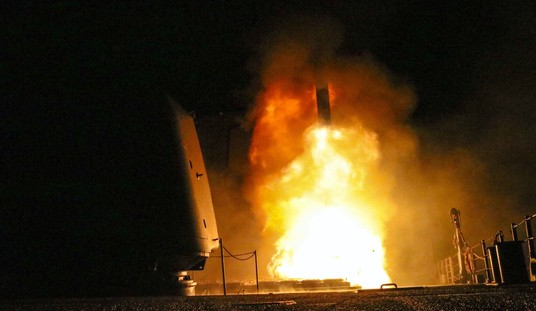Though it does not get much notice in the West, Egypt is home to some of the oldest Christian communities in the world. The city of Alexandria is known as one of the five ancient sees of the early church (along with Rome, Constantinople, Antioch, and Jerusalem), and it calls itself the See of St. Mark (he of the Gospel). Today, reflecting how Christendom has fragmented over the centuries, there are three churches that claim to be the heirs of the church started, according to tradition, by the Apostle: the Coptic Church (also known as an Oriental Orthodox Church), the Eastern Orthodox Church, and the Coptic Catholic Church. While the Coptic Church is the largest of these three, comprising about 10% of the country’s roughly 90 million, all of them find themselves suffering from persecution as the turmoil in Egypt continues.
The vast majority of this persecution has come at the hands of the Muslim Brotherhood and their allies. The situation has degenerated to such an extent that many Copts, along with a sizable portion of the rest of Egypt, even have some level of nostalgia for the days of Hosni Mubarak. As far back as February of 2011, right in the heyday of the Arab Spring, a Los Angeles Times article noted that Copts were wondering what might happen to them under an Islamist regime:
“He’s the best of the worst,” said Sameh Joseph, a church worker at the Patriarch of the Orthodox Christians Church in Alexandria. “Whoever comes after him might want to destroy us.”
So when more than 100,000 anti-government protesters took to the streets here Tuesday, most Copts steered clear.
“Everyone is scared about what is happening,” said Samya Hammoui, who lost two sisters and two nieces in the Jan. 1 bombing. Government officials blamed the attack on a Palestinian terrorist cell from the Gaza Strip.
“If one of the Islamic extremists took over, things for us would be much worse,” she said.
Whatever Mubarak’s flaws, and they were many and frequently grave, it was certainly in his self-interest to keep at bay the same forces that are persecuting Christians across the country now. With him gone, the only restraints remaining on the Islamist forces in the country are largely limited to their own whims, and since Egyptian Christians are one of the easiest scapegoats to blame for Morsi’s ouster, they have been the target of particularly vicious attacks and persecutions since the military took over on July 3rd.
While Egypt’s Christians have suffered all kinds of attacks since the start of the Arab Spring, events just since last Wednesday, August 14, when Egypt’s military moved to clear up two camps of pro-Morsi supporters, should be sufficient to show the grim state of affairs for Egyptian Christians.
On this past Sunday, August 18, a Times of Israel article for the first time in 1,600 years, the Virgin Mary and Priest Ibram Monastery did not hold its Sunday service. The linked article also notes that the monastery’s Priest Selwanes Lofty “said supporters of ousted president Mohammed Morsi destroyed the monastery, which includes three churches, one of which is an archaeological site. ‘One of the extremists wrote on the monastery’s wall, ‘donate [this] to the martyrs’ mosque.'”
On the same day, the Associated Press carried a report recounting numerous instances of Islamist-on-Christian violence and general persecution:
After torching a Franciscan school, Islamists paraded three nuns on the streets like “prisoners of war” before a Muslim woman offered them refuge. Two other women working at the school were sexually harassed and abused as they fought their way through a mob.
In the four days since security forces cleared two sit-in camps by supporters of Egypt’s ousted president, Islamists have attacked dozens of Coptic churches along with homes and businesses owned by the Christian minority. The campaign of intimidation appears to be a warning to Christians outside Cairo to stand down from political activism.
The brutality does not end there, either. The report continues by noting that, since the 14th, close to 40 churches have been looted and torched, and 23 have been heavily damaged. There are also two Christian fatalities: one was a taxi driver who made the mistake of straying into a pro-Morsi protest and the other was a man in the southern province of Sohag. To make matters worse, the police are too often nowhere to be found:
Waheeb, other activists and victims of the latest wave of attacks blame the police as much as hard-line Islamists for what happened. The attacks, they said, coincided with assaults on police stations in provinces like Bani Suef and Minya, leaving most police pinned down to defend their stations or reinforcing others rather than rushing to the rescue of Christians under attack.
Such was the case with the Catholic school they attacked:
By the time the Islamists ordered them out, fire was raging at every corner of the 115-year-old main building and two recent additions. Money saved for a new school was gone, said Manal, and every computer, projector, desk and chair was hauled away. Frantic SOS calls to the police, including senior officers with children at the school, produced promises of quick response but no one came.
Sister Manal, one of the victims, told the Associated Press in an interview:
“We are nuns. We rely on God and the angels to protect us,” she said. “At the end, they paraded us like prisoners of war and hurled abuse at us as they led us from one alley to another without telling us where they were taking us,” she said. A Muslim woman who once taught at the school spotted Manal and the two other nuns as they walked past her home, attracting a crowd of curious onlookers.
An article from the UK’s Daily Mail provides some more perspective:
‘I am terrified and unable to focus,’ said Boulos Fahmy, the pastor of a Catholic church a short distance away from Manal’s school. ‘I am expecting an attack on my church any time now.’
And Bishop Ibram, head of the local Coptic Orthodox church, said he had instructed Christians and clerics not to resist the mobs of Islamists to try and avoid any loss of life.
‘The looters were so diligent that they came back to one of the five churches they had already ransacked to see if they could get more,’ he said.
‘They were loading our chairs and our benches on trucks and when they had no space for more, they just destroyed them.’
On August 18, the Assyrian International News Agency noted the following statement from Coptic Pope Tawadros II:
The Pope said the Church is on “the side of Egyptian law, the armed forces and all the Egyptian civil institutions when it comes to confronting violent armed organizations and terrorizing forces, either within the country or from abroad.” The Pope pointed out that one should look beyond the squares where the Muslim Brotherhood have been holding their protests, in order to gain a general overview of what has been happening for weeks in Egypt. “The attacks on government buildings and peaceful churches terrorize everyone, whether they be Copts or Muslims. These actions go against any religion, any moral code and any sense of humanity.”
The Coptic Church also criticized the way in which the crisis is reported outside of Egypt. It expressly speaks of “false broadcast by Western media,” and urges for an “objective” revision to be made of the descriptions given to the actions of those “blood-thirsty radical organizations.” The Coptic Orthodox Church says that “instead of legitimizing them with global support and political coverage while they are trying to wreak havoc and destruction upon our beloved land, report all events truthfully and accurately.”
[…]
The views of the Coptic church are also held by Copts in general, who are angry with the US and EU powers, “who almost daily issue statements threatening to take further actions against our interim government and army, portraying the Muslim Brotherhood as victims while not even mentioning the destruction of over 80 churches, as well monasteries, orphanages, businesses and Coptic schools by the Muslim Brotherhood,” says Coptic activist Wagih Yacoub who believes that this western attitude emboldens them to carry out further violence. “To add insult to injury the Muslim Brotherhood this week hoisted the black Al-Qaida flag on top of St. George’s church in Sohag. Three churches were turned into mosques in Minya and Friday prayers were held inside them.”
What we are seeing now is nothing new. Since Mubarak’s fall, attacks on Christians have occurred with varying levels of frequency, but the threat has nevertheless remained a constant in their lives. The recent wave, however, has been particularly horrific in its intensity, drawing comparisons from some to Kristallnacht and the many pogroms against Jews that were common in the 19th and 20th centuries. To make these comparisons even more obvious, it should be noted that in the weeks prior to these recent attacks, Christian homes and businesses had been marked with red graffiti, symbolizing the resolve of some Morsi supporters to protect his legitimacy with blood. In a piece titled “Egypt’s Anti-Christian Pogrom“, the National Review‘s Rich Lowry noted:
According to Sam Tadros of the Hudson Institute, a Coptic Christian who is author of the new book Motherland Lost, there has been nothing like it since 1321, when a similar wave of church burnings signaled a centuries-long period of intense persecution that saw the Coptic Christian community decline from somewhat less than half of Egypt’s population to its current 10 percent.
For the Islamists, the ongoing pogrom serves the immediate purpose of whipping up popular sentiment and the longer-term one of cleansing the country of Christians, who may ultimately face the fate of Egypt’s Jews. They went from a population of 80,000 after World War II to literally a handful today. If Muslim Brotherhood rule would have been particularly dire for Coptic Christians, none of the recent regimes in Egypt — including the latest set of military rulers — has shown any interest in protecting them.
So, what can be done? First of all,I should stress that the help we can give need not be military intervention. Instead, we should look to other means, and for many of us it’s as simple as speaking out about the persecution . The Obama administration has been largely silent on their plight thus far. I am not going to speculate on his reasons for this, but this seems to be one of the issues where using the “bully pulpit”, at home and abroad, is indeed appropriate. Furthermore, as Rich Lowry rightly notes, we should use what influence we have to push for the adoption of a non-Islamist constitution that respects religious freedom and the rights of religious minorities.Finally, it is worth considering some of Representative Frank Wolf’s recommendations for U.S. policy in the country from his March 2013 report on his trip to the Middle East. While it was released before Morsi’s ouster and therefore is somewhat dated, useful suggestions can still be gleaned from it. In particular, his last two points merit mentioning (emphasis mine):
- The U.S. embassy should actively seek to cultivate relationships with the liberal, democratic Egyptian opposition groups and individuals, human rights groups, Coptic Christians and other key civil society actors. By most accounts, U.S. policy has not evolved to meet the new realities in Egypt. We have embraced the Morsi government the same way we embraced the Mubarak government—to the detriment of other elements of Egyptian civil society—elements with which we have a natural affinity. While such groups may not take the reins of leadership in the near future, they are central to the Egyptian democratic experiment, and we can bolster their standing and effectiveness if we take the long-term view. In this same vein, aid to Egypt should once again benefit Egyptian civil society, not simply the military and economy.
- Congressional delegations traveling to Egypt should meet with activists, NGOs and Christian leaders to better understand what is happening on the ground and to hear firsthand the perception of the United States’ support for the Muslim Brotherhood.
The $1.5 billion in foreign aid we send Egypt is perhaps the biggest bargaining chip we have, and reducing or cutting it out entirely are two options that should remain on the table if Egypt fails to respect the rights of its religious minorities, both Christian and otherwise. Furthermore, as Rep. Wolf notes, we should refocus the aid we do send Egypt so that it goes to the people who need it most, not just the economy and the ruling class (whoever that ends up being).
Friends, it is late, but it is not too late. The Egyptian Christians deserve our attention, and we should do what we can to speak out on their behalf and support them.Call your Congressman, tell your friends, talk about it with the people you go to church with, say a prayer, donate money to a respectable charity or at your church. We can all do something, whether it’s great or small.














Join the conversation as a VIP Member